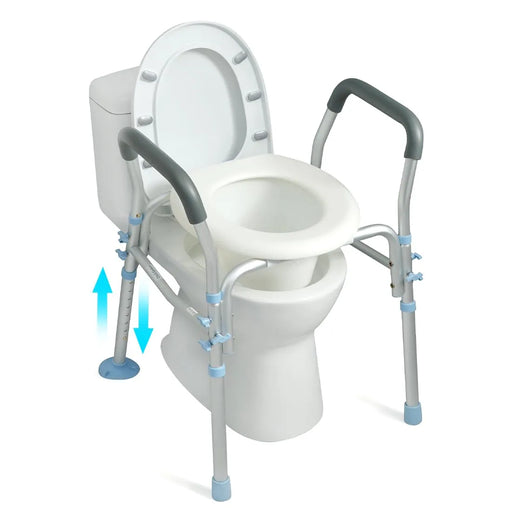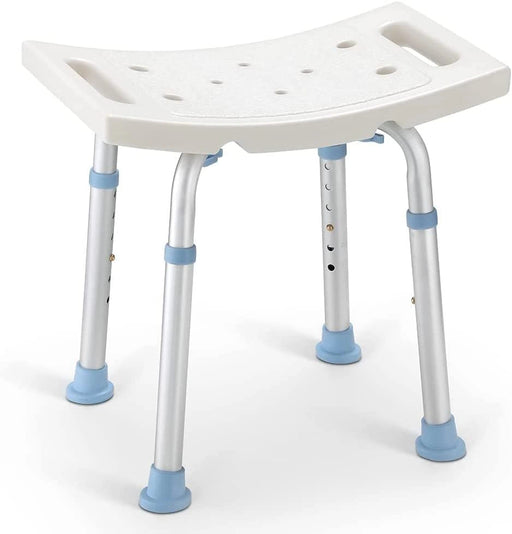8 Useful Tips for Elderly to Walk Easily
We are all aware that we should be doing more physical activity. Getting elders to participate in a walking program may have a variety of positive effects on their general health and well-being.
Brisk walking could assist elders' hearts to stay robust by boosting their heart rate. It may lower the risk of heart illness, hypertension, and stroke in older adults. Walking could even help to avoid the development of osteoporosis, a condition that causes bones to become brittle and more prone to fracturing. Moreover, going outdoors in the clean air has been related to improved mental health and stress reduction. Walking, whether undertaken in a group or with companions, should be regarded as a social event, which can assist to alleviate feelings of isolation or loneliness. What's more, regular walking and a healthy lifestyle may minimize the incidence of dementia in elder people. The frequent movement will enhance strength and mobility in persons with dementia, as well as ensure quality sleep. As some studies show, it could also help cognition and reduce the development of memory loss.
Walking is not always as simple as it appears for certain older folks. As the years sneak up on us, we start to have difficulties walking as senior citizens. It is normal to suffer from the effects of arthritis, hip surgeries, knee injuries, and the regular soreness that arise as we get older. In general, older adults are apprehensive about exercising or going for a stroll if they are uneasy doing that. So, how can we get the seniors back on their feet once they have coped with many of the regular ailments of old age? What methods may we use?
Here are some examples of geriatric walking challenges, as well as the actions you may undertake to conquer them:
1. Prepare Your Body.
Despite the fact that walking is a low-impact exercise, you should warm up and cool down correctly to avoid sprains and strains, and other unwanted injuries. A warm-up serves to stimulate blood flow, which helps to transport oxygen and nutrients to the cells. Your muscles become more supple and responsive as a result of this, preparing your body for the workout. A cool-down, on the other hand, serves to reduce the accumulation of lactic acid in the body, which aims to minimize unpleasant aches and discomfort.
2. Be Aware of The Weather
If you aren't informed, rain, cold, or temperature increases in the terrible days may all combine to create a perilous circumstance. Keep in mind to layer your clothes while it is freezing outdoors so that you may remove layers if you begin to feel overly hot. In late summer and early fall, use sunscreen or a hat to protect yourself from the heat and drink lots of water to keep hydrated.
It's also crucial to know when it's not safe to go for a stroll outside due to the weather conditions. Pavement may become treacherous on icy roads in the winter, chilly temperatures may induce numbness and make your muscles rigid, and summer's scorching heat may increase your chances of getting heatstroke. Instead of going outside on these days, go for a treadmill or another moderate exercise such as swimming until the weather is suitable to go out again. It is equally important to examine the air quality indices before venturing out in order to preserve your respiratory system and general health.
3. Choose Appropriate Equipment

Putting on moisture-wicking apparel, wearing a hat and sunglasses are all forms of gear that may make your walking more pleasant. However, once you start walking, the most critical bit of kit you can have is a good pair of walking shoes. As an alternative to just using what you already have, think about investing in specialized footwear. This footwear will often have a flatter heel than a running shoe, will be comfortable throughout the movement, and will have a high grip to help eliminate falls on loose or damp ground.
Consult with your doctor to determine which kinds of footwear will be the most advantageous to your feet. Your doctor may recommend that you see a podiatrist, who may create a pair of bespoke shoes that are particularly tailored to your feet.
4. Select Proper Walking Surface
Walking on rough surfaces such as pavement or sidewalk may be particularly stressful on your joints as you become older, especially if you have physical issues with your hips or knees. Strolling on softer terrain, such as smooth dirt paths or grass, will be less demanding on your joints. Another fantastic option is to use a treadmill, which is gentler than walking on the road outdoors and provides a secure and controlled environment to make moves.
5. Respect your Body
A hurting back, painful knees, or a sick that won't go away are all situations you shouldn't attempt to force yourself through with. Pay close attention to your body throughout the exercise and in the hours after a workout to detect any changes that are beyond the norm. Fluid retention in the feet might indicate a circulation issue, and trouble breathing may indicate that you need to get your allergies and lungs checked for an underlying problem. Getting these issues addressed as soon as possible is critical to preserving your health and progressing your walking routine effectively.
6. Break Up your Walking
According to the American Heart Association, it is suggested that individuals over the age of 65 engage in a total of 150 minutes of moderate-intensity sport every week. Although 30 minutes of walking in a few days per week are sufficient, it is acceptable to gradually increase the amount of time spent on exercising to a target of 60 minutes each day. When you're out of shape or are not accustomed to following a walking schedule, this may seem difficult, but it is much simpler than you imagine. Rather than going for a 60-minute stroll every night, divide it up into many separate periods throughout the day to make it more bearable. It may be preferable to accomplish a 20-minute stroll in the morning, another in the noon, and a third in the nighttime instead of attempting to do the full exercise within one time.
7. Safety First
Your safety should come first when walking, just as it does in everything else. Bringing a smartphone in case you have to call for assistance is a smart option and wearing bright clothes if you want to walk at night. You should also keep an eye out for any dangers on the road in front of you. And if you encounter any ache when walking, it's necessary to stop and rest for a few minutes.
Try to establish reasonable objectives when you first start and to be frank with yourself if you suffer an illness. Boost your physical wellness gradually, and always seek medical advice or the guidance of other healthcare experts if you have any worries.
8. Make Use of Walking Devices.

Do you have problems with your balance or mobility? Walking aids such as a cane, a rollator walker, or an upright walker may be of assistance. Using these aids may provide you with additional stability and serve to disperse your body's mass, avoiding all of your load being concentrated on your joints and ankles. Walkers' assistance may also enhance your upper back alignment, which apportions your mass more uniformly and minimizes the likelihood of an accident happening to you. Some people feel that using walking assistance is a sign of weakness, but fortunately, this stigma is beginning to vanish. A study conducted recently showed that the usage of walking devices has grown by 50% in the past decade.
Walking is a low-impact activity that may enable older adults of all ages to develop their cardiovascular fitness while also building their muscles and bones. Include walking in your regular schedule and you'll see the rewards right away!
Recommend Products
-
 Sale
Sale
300LBS Capacity Raised Toilet Seat with Arms
Original price $120.99From Original price $69.99Original price $120.99Current price $69.99From $69.99Current price $69.99OasisSpace Raised Toilet Seat with Arms - Safe and Convenient OasisSpace Raised Toilet Seat with Arms provides stable support for users to sit dow...
View full detailsSaleOriginal price $120.99From Original price $69.99Original price $120.99Current price $69.99From $69.99Current price $69.99 -
 Sale
Sale
Standard - 300LBS Capacity Shower Stool
Original price $51.99From Original price $29.99Original price $51.99Current price $29.99From $29.99Current price $29.99OasisSpace Medical Square Shower Stool for Bathtub OasisSpace Square Shower Stool for Bathtub is approved as the highest standard(FDA) for medical...
View full detailsSaleOriginal price $51.99From Original price $29.99Original price $51.99Current price $29.99From $29.99Current price $29.99



